Subtitle "Afrikaans" was produced by machine.Subtitle "አማርኛ" was produced by machine.Subtitle "العربية " was produced by machine.Subtitle "Ārāmāyâ" was produced by machine.Subtitle "azərbaycan dili " was produced by machine.Subtitle "беларуская мова " was produced by machine.Подзаглавието "България" е създадено от машина.সাবটাইটেল "বাংলা " মেশিন দ্বারা তৈরি করা হয়েছিল।Subtitle "བོད་ཡིག" was produced by machine.Subtitle "босански" was produced by machine.Subtitle "català" was produced by machine.Subtitle "Cebuano" was produced by machine.Subtitle "ગુજરાતી" was produced by machine.Subtitle "corsu" was produced by machine.Podtitul "Čeština" byl vytvořen automaticky.Subtitle "Cymraeg" was produced by machine.Subtitle "Dansk" was produced by machine.Untertitel "Deutsch" wurde maschinell erzeugt.Subtitle "Untertitel" was produced by machine.Ο υπότιτλος "Ελληνικά" δημιουργήθηκε αυτόματα.Subtitle "English" was produced by machine.Subtitle "Esperanto" was produced by machine.El subtítulo "Español" se generó automáticamente.Subtitle "Eesti" was produced by machine.Subtitle "euskara" was produced by machine.Subtitle "فارسی" was produced by machine.Subtitle "Suomi" was produced by machine.Le sous-titrage "Français" a été généré automatiquement.Subtitle "Frysk" was produced by machine.Subtitle "Gaeilge" was produced by machine.Subtitle "Gàidhlig" was produced by machine.Subtitle "Galego" was produced by machine.Subtitle "Schwizerdütsch" was produced by machine.Subtitle "هَوُسَ" was produced by machine.Subtitle "Ōlelo Hawaiʻi" was produced by machine.Subtitle "עברית" was produced by machine.Subtitle "हिन्दी" was produced by machine.Subtitle "Mẹo" was produced by machine.Subtitle "Hrvatski" was produced by machine.Subtitle "Kreyòl ayisyen " was produced by machine.Subtitle "Magyar" was produced by machine.Subtitle "Հայերեն" was produced by machine.Subtitle "Bahasa Indonesia " was produced by machine.Subtitle "Asụsụ Igbo " was produced by machine.Textun"Íslenska" var framkvæmt vélrænt.Sottotitoli "Italiano" sono stati generati automaticamente.字幕は"日本語" 自動的に生成されました。Subtitle "Basa Jawa" was produced by machine.Subtitle "ქართული" was produced by machine.Subtitle "қазақ тілі " was produced by machine.Subtitle "ភាសាខ្មែរ" was produced by machine.Subtitle "ಕನ್ನಡ" was produced by machine.Subtitle "한국어" was produced by machine.Subtitle "कोंकणी語" was produced by machine.Subtitle "کوردی" was produced by machine.Subtitle "Кыргызча" was produced by machine.Subtitle " lingua latina" was produced by machine.Subtitle "Lëtzebuergesch" was produced by machine.Subtitle "Lingala" was produced by machine.Subtitle "ພາສາ" was produced by machine.Subtitle "Lietuvių" was produced by machine.Subtitle "Latviešu" was produced by machine.Subtitle "fiteny malagasy" was produced by machine.Subtitle "te reo Māori" was produced by machine.Subtitle "македонски јазик" was produced by machine.Subtitle "malayāḷaṁ" was produced by machine.Subtitle "Монгол хэл" was produced by machine.Subtitle "मराठी" was produced by machine.Subtitle "Bahasa Malaysia" was produced by machine.Subtitle "Malti" was produced by machine.Subtitle "မြန်မာစာ " was produced by machine.Subtitle "नेपाली" was produced by machine.Ondertitels "Nederlands" machinaal geproduceerd.Subtitle "Norsk" was produced by machine.Subtitle "chiCheŵa" was produced by machine.Subtitle "ਪੰਜਾਬੀ" was produced by machine.Podtytuł "Polska" został utworzony przez maszynę.Subtitle "پښتو" was produced by machine.Legenda "Português" foi gerada automaticamente.Subtitle "Română" was produced by machine.Subtitle "Язык жестов (Русский)" was produced by machine.Субтитры "Pусский" были созданы машиной.Subtitle "Kinyarwanda" was produced by machine.Subtitle "सिन्धी" was produced by machine.Subtitle "Deutschschweizer Gebärdensprache" was produced by machine.Subtitle "සිංහල" was produced by machine.Subtitle "Slovensky" was produced by machine.Subtitle "Slovenski" was produced by machine.Subtitle "gagana fa'a Samoa" was produced by machine.Subtitle "chiShona" was produced by machine.Subtitle "Soomaaliga" was produced by machine.Subtitle "Shqip" was produced by machine.Subtitle "србски" was produced by machine.Subtitle "Sesotho" was produced by machine.Subtitle "Basa Sunda" was produced by machine.Undertext "Svenska" är maskinell skapad.Subtitle "Kiswahili" was produced by machine.Subtitle "தமிழ்" was produced by machine.Subtitle "తెలుగు" was produced by machine.Subtitle "Тоҷикй" was produced by machine.Subtitle "ภาษาไทย" was produced by machine.ንኡስ ኣርእስቲ "ትግርኛ" ብማሽን እዩ ተፈሪዩ።Subtitle "Türkmençe" was produced by machine.Subtitle "Tagalog" ay nabuo sa pamamagitan ng makina.Subtitle "Türkçe" was produced by machine.Subtitle "татар теле" was produced by machine.Subtitle "Українська " was produced by machine.ذیلی عنوان "اردو" مشین کے ذریعہ تیار کیا گیا تھا۔Subtitle "Oʻzbek" was produced by machine.Phụ đề được tạo bởi máy.Subtitle "Serbšćina" was produced by machine.Subtitle "isiXhosa" was produced by machine.Subtitle "ייִדיש" was produced by machine.Subtitle "Yorùbá" was produced by machine.Subtitle "中文" was produced by machine.Subtitle "isiZulu" was produced by machine.
kla.TV accepts no liability for defective translation.kla.TV accepts no liability for defective translation.kla.TV accepts no liability for defective translation.kla.TV accepts no liability for defective translation.kla.TV accepts no liability for defective translation.kla.TV accepts no liability for defective translation.kla.TV не носи отговорност за некачествен превод.অপর্যাপ্ত অনুবাদের জন্য kla.TV কোন দায় বহন করে না।kla.TV accepts no liability for defective translation.kla.TV accepts no liability for defective translation.kla.TV accepts no liability for defective translation.kla.TV accepts no liability for defective translation.kla.TV accepts no liability for defective translation.kla.TV accepts no liability for defective translation.kla.TV nenese žádnou odpovědnost za chybné překlady.kla.TV accepts no liability for defective translation.kla.TV accepts no liability for defective translation.kla.TV übernimmt keine Haftung für mangelhafte Übersetzung.kla.TV accepts no liability for inadequate translationΗ kla.TV δεν φέρει καμία ευθύνη για ανεπαρκή μετάφραση.kla.TV accepts no liability for defective translation.kla.TV accepts no liability for defective translation.kla.TV no se hace responsable de traducciones incorrectas.kla.TV accepts no liability for defective translation.kla.TV accepts no liability for defective translation.kla.TV accepts no liability for defective translation.kla.TV accepts no liability for defective translation.kla.TV n'assume aucune responsabilité en cas de mauvaise traduction.kla.TV accepts no liability for defective translation.kla.TV accepts no liability for defective translation.kla.TV accepts no liability for defective translation.kla.TV accepts no liability for defective translation.kla.TV accepts no liability for defective translation.kla.TV accepts no liability for defective translation.kla.TV accepts no liability for defective translation.kla.TV accepts no liability for defective translation.kla.TV accepts no liability for defective translation.kla.TV accepts no liability for defective translation.kla.TV accepts no liability for defective translation.kla.TV accepts no liability for defective translation.kla.TV nem vállal felelősséget a hibás fordításértkla.TV accepts no liability for defective translation.kla.TV accepts no liability for defective translation.kla.TV accepts no liability for defective translation.kla.TV tekur enga ábyrgð á áræðanleika þýðingarinnarKla.TV non si assume alcuna responsabilità per traduzioni lacunose e/o errate.Kla.TV は、不適切な翻訳に対して一切の責任を負いません。kla.TV accepts no liability for defective translation.kla.TV accepts no liability for defective translation.kla.TV accepts no liability for defective translation.kla.TV accepts no liability for defective translation.kla.TV accepts no liability for defective translation.kla.TV accepts no liability for defective translation.kla.TV accepts no liability for defective translation.kla.TV accepts no liability for defective translation.kla.TV accepts no liability for defective translation.kla.TV accepts no liability for defective translation.kla.TV accepts no liability for defective translation.kla.TV accepts no liability for defective translation.kla.TV accepts no liability for defective translation.kla.TV accepts no liability for defective translation.kla.TV accepts no liability for defective translation.kla.TV accepts no liability for defective translation.kla.TV accepts no liability for defective translation.kla.TV accepts no liability for defective translation.kla.TV accepts no liability for defective translation.kla.TV accepts no liability for defective translation.kla.TV accepts no liability for defective translation.kla.TV accepts no liability for defective translation.kla.TV accepts no liability for defective translation.kla.TV accepts no liability for defective translation.kla.TV accepts no liability for defective translation.kla.TV aanvaardt geen aansprakelijkheid voor foutieve vertalingen.kla.TV accepts no liability for defective translation.kla.TV accepts no liability for defective translation.kla.TV accepts no liability for defective translation.kla.TV nie ponosi odpowiedzialności za wadliwe tłumaczenie.kla.TV accepts no liability for defective translation.kla.TV não se responsabiliza por traduções defeituosas.kla.TV accepts no liability for defective translation.kla.TV accepts no liability for defective translation.kla.TV не несет ответственности за некачественный перевод.kla.TV accepts no liability for defective translation.kla.TV accepts no liability for defective translation.kla.TV accepts no liability for defective translation.kla.TV accepts no liability for defective translation.kla.TV accepts no liability for defective translation.kla.TV accepts no liability for defective translation.kla.TV accepts no liability for defective translation.kla.TV accepts no liability for defective translation.kla.TV accepts no liability for defective translation.kla.TV nuk mban asnjë përgjegjësi për përkthime joadekuate.kla.TV accepts no liability for defective translation.kla.TV accepts no liability for defective translation.kla.TV accepts no liability for defective translation.Kla.TV tar inget ansvar för felaktiga översättningar.kla.TV accepts no liability for defective translation.kla.TV accepts no liability for defective translation.kla.TV accepts no liability for defective translation.kla.TV accepts no liability for defective translation.kla.TV accepts no liability for defective translation.kla.TV ንዝኾነ ጉድለት ትርጉም ዝኾነ ይኹን ሓላፍነት ኣይቅበልን እዩ።kla.TV accepts no liability for defective translation.kla. Walang pananagutan ang TV sa mga depektibong pagsasalin.kla.TV accepts no liability for defective translation.kla.TV accepts no liability for defective translation.kla.TV accepts no liability for defective translation.kla.TV عیب دار ترجمہ کے لیے کوئی ذمہ داری قبول نہیں کرتا ہے۔kla.TV accepts no liability for defective translation.Kla. TV không chịu trách nhiệm về bản dịch không đầy đủ.kla.TV accepts no liability for defective translation.kla.TV accepts no liability for defective translation.kla.TV accepts no liability for defective translation.kla.TV accepts no liability for defective translation.kla.TV accepts no liability for defective translation.kla.TV accepts no liability for defective translation.
This is a modal window.
The media could not be loaded, either because the server or network failed or because the format is not supported.
Pearl Harbor - unprovoked? Jeannette Rankin's 1942 address to Congress
07.12.2022
www.kla.tv/24318
Today is the anniversary of the Japanese attack on Pearl Harbor on December 7th, 1941, which caused America's entry into World War 2. On December 8th, 1942, exactly one year after president Roosevelt stood before Congress and demanded a vote for war, Jeanette Rankin, the only member of Congress to vote against America's entry into that war, penned an address to Congress, entitled, “Some Questions about Pearl Harbor”. In the speech, she asks whether or not the attack by the Japanese was 'unprovoked', as FDR put it. Listen to her speech and decide for yourself!
[continue reading]
Pearl Harbor - unprovoked? Jeannette Rankin's 1942 address to Congress
Download broadcast and attachments in the wanted quality:
Useage rights:
Standard-Kla.TV-Licence
Topics A-Z
Enter a word for search or use the alphabetic search-order



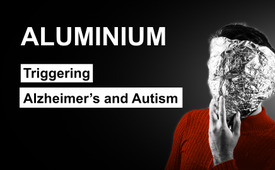
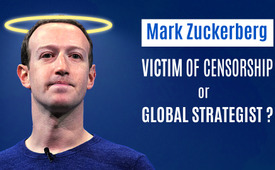


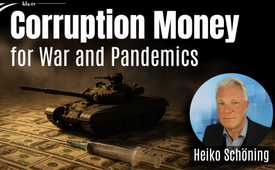

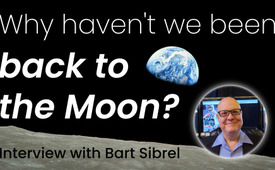
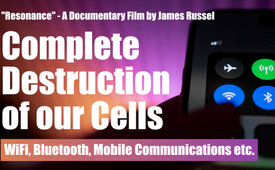

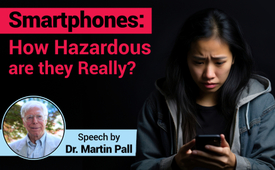






07.12.2022 | www.kla.tv/24318
On the eve of the anniversary of the attack on Pearl Harbor, we report from snowy Missoula Montana, USA, on the campus of the University of Montana. There's a significance between our present surroundings, and what happened at Pearl Harbor 81 years ago. The building behind me is Rankin Hall, named after Jeannette Rankin, a Montana politician who made history in 1916 as the first woman ever elected to the United States Congress. She was also the only member of Congress to cast a vote against participation in both world wars. In 1916 Ms. Rankin campaigned on social welfare issues, women's suffrage, and U.S. neutrality in World War 1. Soon after her victory she was faced with a momentous decision. In April of 1917, President Woodrow Wilson, who also campaigned on US neutrality, and ran on the slogan “He kept us out of war,” addressed Congress, asking for their vote to enter into the war. Wilson had already significantly violated neutrality by providing armaments and money to the Allied powers who had been fighting Germany since 1914. In his famous war speech before a joint session of congress, the president hailed the US government as “one of the champions of the rights of mankind” and proclaimed that “the world must be made safe for democracy.” Congress gave Wilson his war, but six members of the Senate, and 50 in the House, including Ms. Rankin, voted against the resolution. She had told her colleagues, “I want to stand by my country, but I cannot vote for war”. Her vote proved very unpopular. The Helena Independent called her “a dagger in the hands of the German propagandists, a dupe of the Kaiser, a member of the Hun army in the United States, and a crying schoolgirl.” She lost the support of the voters of Montana, and subsequently lost her seat in Congress. Twenty-three years later, the specter of entry into yet another world war occupied the minds of Americans, who again favored neutrality. Wendell Wilkie, Roosevelt’s opponent in the 1940 campaign, gained momentum when he predicted that FDR would take America to war. Roosevelt countered by promising to not send American troops into battle and won the election and remained in office for his 3rd term. In the same year Jeannette Rankin ran again for election to congress, and this time her anti-war stance was the main pillar of her platform. In 1941, history repeated itself as Roosevelt gave one of the most famous speeches in American history before a joint session of congress, the so-called “Day of Infamy” speech, only one day after the attack on Pearl Harbor. Again, a US president demanded a vote of war from the congress, and again, Jeanette Rankin voted No. But this time, she was the only dissenting vote. Rankin knew how unpopular her vote would be, and that her stance would spell the end of her congressional career. So why did she vote no? Certainly there were other anti-war congressmen who had also favored neutrality, but were left with no choice but to back Roosevelt after, in his words, the “unprovoked and dastardly” attack by the Japanese. Even Charles Lindbergh, who campaigned so hard to keep America neutral, changed his mind after Pearl Harbor and avidly supported America's entry into the war. But Rankin stood alone in Congress. Why? Well, one year later, on the anniversary of the attack on Pearl Harbor, with America fighting in two theaters with the full support of the population, Jeannette Rankin herself stood before the 77th congress and gave a speech, entitled “Some Questions About Pearl Harbor”. Listen to some choice excerpts from the speech, and decide for yourself whether Ms. Rankin had legitimate qualms about rushing to support Roosevelt’s push for war: Mr. Speaker, we have been at war a year. As a Member of Congress who voted against the declaration of war on December 8, 1941, I wish to raise a few questions of my own as to the meaning of certain activities which led up to that attack. Pearl Harbor was the greatest thunderbolt in American history. It is proper to inquire, indeed, whether any responsible American source foresaw the Japanese attack. In this regard I wish to present the following remarkable statement, amounting to a prediction, from the Christian Century magazine of November 19, 1941—3 weeks prior to the Japanese attack—Quote: “It is no secret that the whole colonial structure of the white empires is threatening to fall apart unless we intervene in Asia, Many British leaders would welcome American involvement with Japan.” The thesis of Sidney Rogerson's pre-war book Propaganda in the Next War—that the surest way Britain can bring the United States to her aid will be to involve us in war with Japan—is being validated by events. What does Mr. Rogerson, who is an English author, have to say specifically about the plans of the British imperialists? His book...was banned from export to America by the British censorship in 1939. On page 148 Mr. Rogerson makes this admission as to the plans of the British imperialists: “To persuade her— ‘The United States— to take our part will be much more difficult— Than in 1914— so difficult as to be unlikely to succeed. It will need a definite threat to America; a threat, moreover, which will have to be brought home by propaganda to every citizen, before the Republic will again take arms in an external quarrel. The position will naturally be considerably eased if Japan were involved and this might and probably would bring America in without further ado. At any rate, it would be a natural and obvious object of our propagandists to achieve this, just as during the Great War they succeeded in embroiling the United States with Germany.” In other words, 3 years before Pearl Harbor, Britain’s imperialists had figured out just how to bring the United States once more to their aid. But exactly how was Japan to be embroiled with the United States? There is no better way of goading a nation into war than by imposing economic sanctions, especially in the case of nations devoid of essential raw materials. Indeed, at the very time Mr. Rogerson was writing his revealing book, the phrase “economic sanctions mean war"—an echo from the League of Nations’ threat to Italy in 1937—was still on everybody’s lips. If Britain were merely to induce the United States to sever commercial relations with Japan, who was extremely dependent upon imports of raw materials in exchange for silk and manufactures for the continuance of her economic life, would not that suffice? Is there any evidence of any specific occasion on which the British Government sold this policy of economic sanctions against Japan to the Roosevelt administration? In the Ladies Home Journal of July 1942... in an article entitled “How War Came,” Forrest Davis and Ernest K, Lindley—an intimate friend of the President—make the following significant revelation: “When they— President Roosevelt and Prime Minister Churchill— met in a Newfoundland bight for the Atlantic conference, Churchill wished to meet the issue head-on. He asked the President—as the British, Australians, and Dutch repeatedly had besought this Government before—to Join in an ultimative declaration to Japan.” Now, an ultimatum is a demand accompanied by a threat, It sets up a dilemma; “Do so and so—or else.” In this case the punitive alternative to be offered to Japan was to consist, as we shall see, of an economic blockade—in other words, sanctions—an admitted provocation to war. But of what demand was the ultimatum itself?... And what evidence do we have that President Roosevelt actually accepted Mr. Churchill’s Atlantic conference request that such an ultimatum be sent? There seems to be excellent evidence that such an ultimatum was sent by President Roosevelt. No less an apologist for the administration’s foreign policy than Mr. Henry Luce, editor of Time, Life, and Fortune, has admitted both that President Roosevelt served such an ultimatum on Japan, and that it was the sending of this ultimatum which resulted in the Pearl Harbor attack. What is the evidence that the Roosevelt administration, which had frozen Japanese assets in this country as early as July 25, 1941, rapidly accelerated its economic strangulation of Japan following the Atlantic conference? To secure an accurate statistical answer, I applied to both the Department of State and the Department of Commerce, | for month-by-month figures on American exports to Japan in 1941. To my surprise, I received from both Departments an identical response: “Because of a special Executive order, statistics on trade with Japan beginning with April 1941 are not being given out. Inasmuch as the Japanese certainly know what they received in the way of goods from the United States throughout 1941, it becomes proper to inquire, “From whom are these statistics being concealed?” As a Member of Congress, I was, of course, able to exercise my congressional prerogative of securing this data from an administrative department. Because of its allegedly confidential nature, I cannot, however, reveal it at this time. However, a perusal of other sources throws considerable light upon the extent to which the Roosevelt administration invoked economic sanctions against Japan in the months between the Atlantic Conference and the attack upon Pearl Harbor. For instance, in the New York Times of August 17, 1941, page 7, we read: “Vice President Wallace, the chairman— Of the Economic Defense Board— today confirmed reports that this group was already working on projects for exerting trade pressure on Japan.” In other words, in less than a week after the Atlantic Conference the machinery of economic sanctions was getting under way. Six weeks later the economic stringency in Japan had become acute, as we read in the New York Times of October 24, 1941, page 36: “Japan's raw-material shortage has been sharply aggravated and her industrial activity seriously disrupted by the cessation of her trade with important foreign countries, the Department of Commerce reported today. Ship movements and trade between Japan and the United States, the British Empire, and the Netherlands Indies, it is pointed out, have become virtually nonexistent.” By December 2, 1941—5 days before Pearl Harbor—we read in the New York Times of that date, page 6: “Japan has been cut off from about 75 percent of her normal imports as a result of the Allied blockade, the National Industrial Conference Board reported yesterday. In an analysis entitled “The Effects of the Allied Economic Blockade on Japan,” the Board asserted that despite the drastic restrictions imposed by that Government to stretch out available supplies, the blockade may ultimately prove disastrous.” A week before the attack on Pearl Harbor I asked a prominent non-Japanese oriental: Is the situation in the Pacific as serious as it appears? Yes— He replied— it is serious. Japan has no choice but to go to war or to submit to economic slavery for the rest of her existence.” The question remains, Did President Roosevelt realize that “economic sanctions mean war” at the time he appears to have adopted Mr. Churchill's suggestion to impose them as the punitive alternative for his ultimatum to Japan? It is hard to see how he could have failed to realize this, inasmuch as he himself had made the following statement to the Volunteer Participation Committee on July 24, 1941, as reported in the Department of State Bulletin of July 26, 1941, page 72: “Now, if we cut the oil off, they— The Japanese— probably would have gone to the Dutch East Indies a year ago, and you would have had war.” Whereupon, immediately after the Atlantic Conference of 2 weeks later, Mr. Roosevelt proceeded to invoke these self- acknowledged war-producing sanctions. Was it not strange that Mr. Roosevelt, who, by refusing for years to enforce the Neutrality Act of 1936 to prevent shipments of war supplies to Japan despite popular demand, had largely contributed to supplying that nation with the raw materials for the armament now being used against our own troops, after the Atlantic Conference when an incident with Japan seems to have been desired, suddenly changed his policy and not only cut off war supplies but virtually everything required by the civilian population of Japan as well? As a member of the President's own party, Congressman Harton W. Sumners, of Texas, chairman of the House Judi- ciary Committee, remarked in a letter to the Saturday Evening Post, published in that periodical on April 4, 1942, page 26: “We have been a very foolish people, which has made it possible for politicians to get away with murder. This blaming the Pearl Harbor tragedy on the treachery of the Japs is like the fellow who had been tickling the hind leg of a mule trying to explain his bunged-up condition by blaming the mule for having violated his confidence.” On November 27, 1941— the Chief of Naval Operations sent a message to the commander in chief of the Pacific Fleet, which stated in substance that the dispatch was to be considered a war warning that Japan was expected to make an aggressive move in the next few days, Additional warnings were sent November 28, November 29, November 30, December 1, December 3, December 4, December 6, and December 7—the last one arriving in Hawaii after the Japanese onslaught had begun. Thus, we see that for 2 weeks prior to the Pearl Harbor attack almost daily warnings had been sent, not to mention less frequent precautionary dispatches earlier, What more could have been done in the way of warnings is hard to see. Indeed, do not the frequency, urgency, the very wording of these warnings, indicate in themselves that the Pearl Harbor attack came as no surprise whatever to the President? Has Prime Minister Churchill ever admitted attempting to get the United States into this war? Yes; quite frankly—after we were in. this boast was wrung from him—as reported in the New York Times of February 16, 1942, page 6: “When I survey and compute the power of the United States and its vast resources and feel that they are now in it with us, with the British Commonwealth of Nations all together, however long it lasts, till death or victory, I cannot believe that there is any other fact in the whole world which can compare with that. This is what I have dreamed of, aimed at, and worked for, and now it has come to pass.” A blunt acknowledgment, surely. Has either Mr. Churchill or Mr. Roosevelt ever acknowledged that the Atlantic conference was the specific occasion of their efforts to get the United States into the war by embroiling us with Japan? It is hard to see what else the following admission from Mr. Churchill’s speech in Parliament, January 28, 1942— as reported in the New York Times of that date—can be called: “It has been the policy of the Cabinet at almost all costs to avoid embroilment with Japan until we were sure that the United States would also be engaged. On the other hand, the probability since the Atlantic conference, at which I discussed these matters with President Roosevelt, that the United States, even if not herself attacked, would come into the war in the Far East and thus make the final victory assured, seemed to allay some of these anxieties, and that expectation has not been falsified by the events.” This would seem to indicate that not only did President Roosevelt accede to Churchill’s pressure to send an ultimatum to, and impose sanctions upon, Japan but made a blanket commitment to bring America into the war even if Japan did not attack Today approximately 1,000,000 American boys are fighting from three to eight thousand miles away from home. The American people are willing to struggle for the -quote- “four freedoms” but we realize that we must retain them at home if we are going to give them to others. Exercising our traditional right of free speech and free inquiry, we are going to continue to ask and to seek answers to all questions as they arise. ‘When are we going to get the full story of what happened at the Atlantic Conference? We asked for it then and ask for it now. When President Roosevelt had so persistently refused to enforce the Neutrality Act against Japan when public opinion definitely demanded it, why did he so suddenly change his policy at the Atlantic Conference? A year ago, one of my congressional colleagues, having observed for months the adroitness with which President Roosevelt, had brought us ever closer to the brink of war in the Atlantic only to be continually frustrated in the final step by a reluctant Congress, seeing fate present the President on December 7th, 1941, with a magnificent moral categorical, right out of the blue—a casus belli beyond all criticism—exclaimed in despair: “What luck that man has!” But was it luck?
from dws
http://www.roosevelthouse.hunter.cuny.edu/seehowtheyran/portfolios/1940-fdrs-third-presidential-campaign-fdr-a-third-term/
https://constitutioncenter.org/blog/on-this-day-jeanette-rankins-history-making-moment
https://cdm16694.contentdm.oclc.org/digital/collection/p15085coll2/id/6646